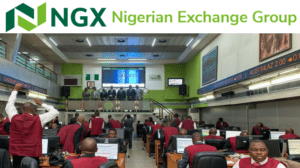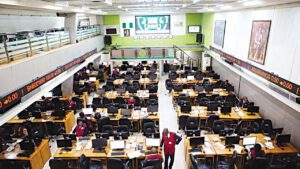Drop in inflation rate to boost investor confidence — Uwaleke
By Kayode Tokede
A finance expert, Prof. Uche Uwaleke has welcomed the further drop in Nigeria’s inflation rate, saying the development will further boost investor confidence.
According to him, “It is cheering to note that headline inflation dropped again in the month of July for the 4th consecutive time since April 2021.
The deceleration in inflation rate facilitates monetary policy implementation. It is also expected to reduce the incentive for speculative activities in the forex market as more people begin to increase their fate in the domestic currency. So, the current disinflation will support the value of the Naira.
“It will equally send a positive signal to foreign and domestic investors regarding macroeconomic stability in Nigeria as well as facilitate the rebound of the stock market.”
He, however, cautioned the federal government on the need to tackle key challenges that may threaten the consecutive drop.
“Be that as it may, the big question is whether the deceleration is sustainable considering the risks to inflation outlook which are still present.
“These include insecurity which directly impacts food inflation, the recent devaluation of the Naira, flooding in many parts of the country and the likely hike in pump price of fuel following the signing into law of the Petroleum Industry Bill (PIB).
“Despite the usual increase in demand associated with Sallah and other festive seasons, the drop in the July inflation rate may have been the result of onset of harvest season, CBN’s interventions in the Agriculture value chain as well as base effect. This appears the case since the deceleration was noticed in the food component while the core index actually increased both Year-on-Year and month-on-month basis.
“It is pertinent to note that Inflationary pressure continues to be driven by the food index at over 21 per cent reflecting legacy factors such as transport challenges. This partly explains why food inflation is reportedly highest in Kogi at over 28per cent and lowest In neighbouring Abuja at about 16 per cent.”
Speaking on the increase in core Inflation, Prof. Uwaleke says “Given that the rise in core inflation may not be unconnected with high Exchange rates, the CBN should continue to ensure forex market liquidity to enhance access to forex especially now that crude oil prices are relatively high and in view of the recent suspension of forex sales to BDCs.”
He, added that in order to increase food output and significant bring down food inflation, the need to tackle the seemingly intractable security challenge facing the country cannot be overemphasized.
The consumer price index (CPI), which measures the rate of change in prices of goods and services, moderated for the fourth consecutive time to 17.38 per cent in July from 17.75 per cent in June.
This implies that prices continued to rise in July 2021 — but at a slightly slower pace than it did in previous month.
This is according to the ‘Consumer Price Index Report for July,’ released by the National Bureau of Statistics (NBS), on Tuesday.
The slowdown in inflation was due to the broad-based slowdown across the food baskets, however, core inflation increased during the period.




